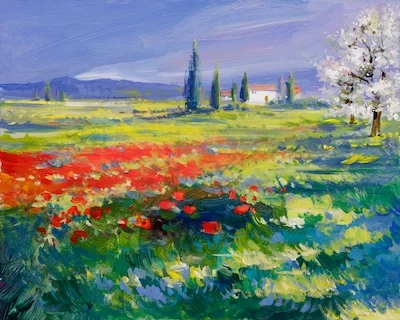Rirkrit Tiravanija in Saskatoon
An international star who attended art school in Toronto bounces some ping-pong balls back to Canada.

Rirkrit Tiravanija, “Tomorrow is the Question,” 2019
detail of installation at the Remai Modern, Saskatoon (photo by Blaine Campbell)
I’ve always been terrible at sports. A stereotypical artist, I recoil from balls and physical exertion. Ping-pong, though, is invitingly innocuous. In a Canadian context, it conjures up basement rumpus rooms.
International art star Rirkrit Tiravanija has placed five ping-pong tables in the Remai Modern’s Connect Gallery, where admission is always free. This sort of gesture, intended to open the space to convivial social exchange, is typical of the Argentinian-born artist, who found acclaim for his socially engaged or relational art after graduating from what’s now OCAD University in Toronto.
Tiravanija constructs situations with modest materials, including his signature Thai curry. Amateur cooking became a strategy to convene large social gatherings. Refuse from the meal was piled in a midden, forming a record of an ephemeral event. Indeed, it is the interactions between people, not the assembly of conditions for encounters or the traces of activity, that are the artwork.

Rirkrit Tiravanija, “Tomorrow is the Question,” 2019
installation view at the Remai Modern, Saskatoon (photo by Blaine Campbell)
Tomorrow is the Question, on until March 24, is a remounting by Tiravanija of Julius Koller’s 1970 project, Ping-Pong Society, in which the Slovak artist created a ping-pong club rather than an exhibition. Koller, a little-known conceptual artist, viewed both tennis and table tennis as participatory art forms.
Vinyl text, in white, red, yellow, blue and green, is adhered to the playing surface of each table. Oriented toward the door, rather than the players, it reads: “Tomorrow is the question.” Each paddle’s red rubber face is painted with an ess-shaped question mark that’s like a signature for Koller.
Upon entering the gallery, I saw a father and son finishing a game. The child begged his father for another round, and I thought of offering up my husband. However, I didn’t. So much for the work spurring social interaction.

Rirkrit Tiravanija, “Tomorrow is the Question,” 2019
detail of installation at the Remai Modern, Saskatoon (photo by Blaine Campbell)
Even in the nearly empty gallery, Tomorrow is the Question creates a resounding clatter. The hollow, orange ball makes a satisfying “ponk” when it collides with the paddle and a dull crack when it contacts the playing surface or floor. The usual contemplative, hands-off atmosphere of the gallery is shattered by running, dodging, smashing and shouting.
As the ball bounced over the slogan emblazoned on the table, I wondered if this convivial racket was the answer to Tiravanija’s riddle.

Rirkrit Tiravanija, “Tomorrow is the Question,” 2019
installation view at the Remai Modern, Saskatoon (photo by Blaine Campbell)
Bored with his easy 10 to 0 victory over me, my husband proceeded to smash multiple balls over the tiny net at me. What would Koller think?
His original project contained an appeal to apply the game’s ideal of fair play to all social interactions. Koller’s tennis, table tennis and question marks were not merely absurd interventions into the everyday, but encouragement to dream and enact a better life. ■
Tomorrow is the Question is on view at the Remai Modern in Saskatoon from Jan. 19 to March 24, 2019.

REMAI MODERN
102 Spadina Crescent E, Saskatoon, Saskatchewan S7K 0L3
please enable javascript to view
Wed to Sun 10 am - 5 pm, until 9 pm on Thurs and Fri
